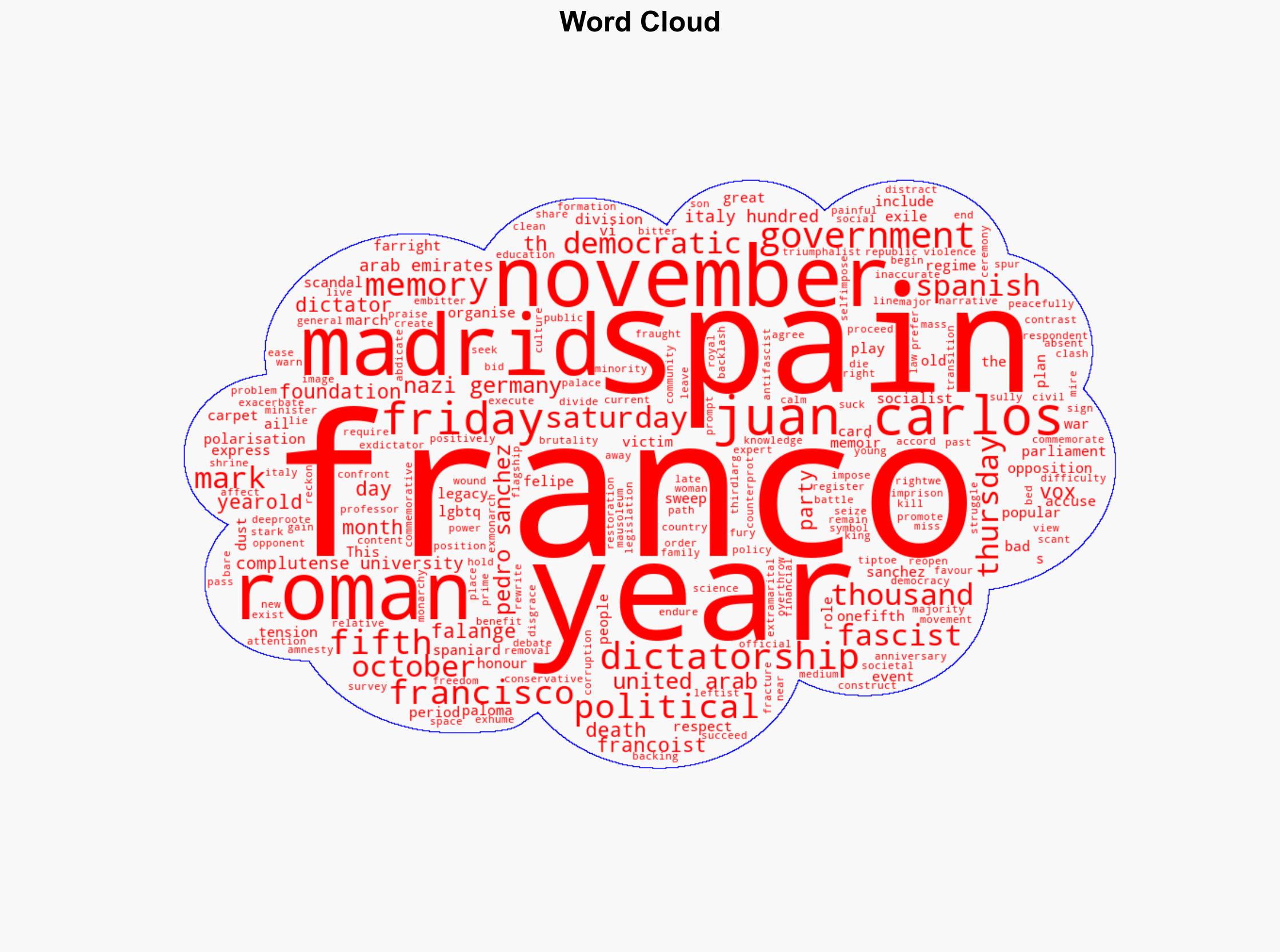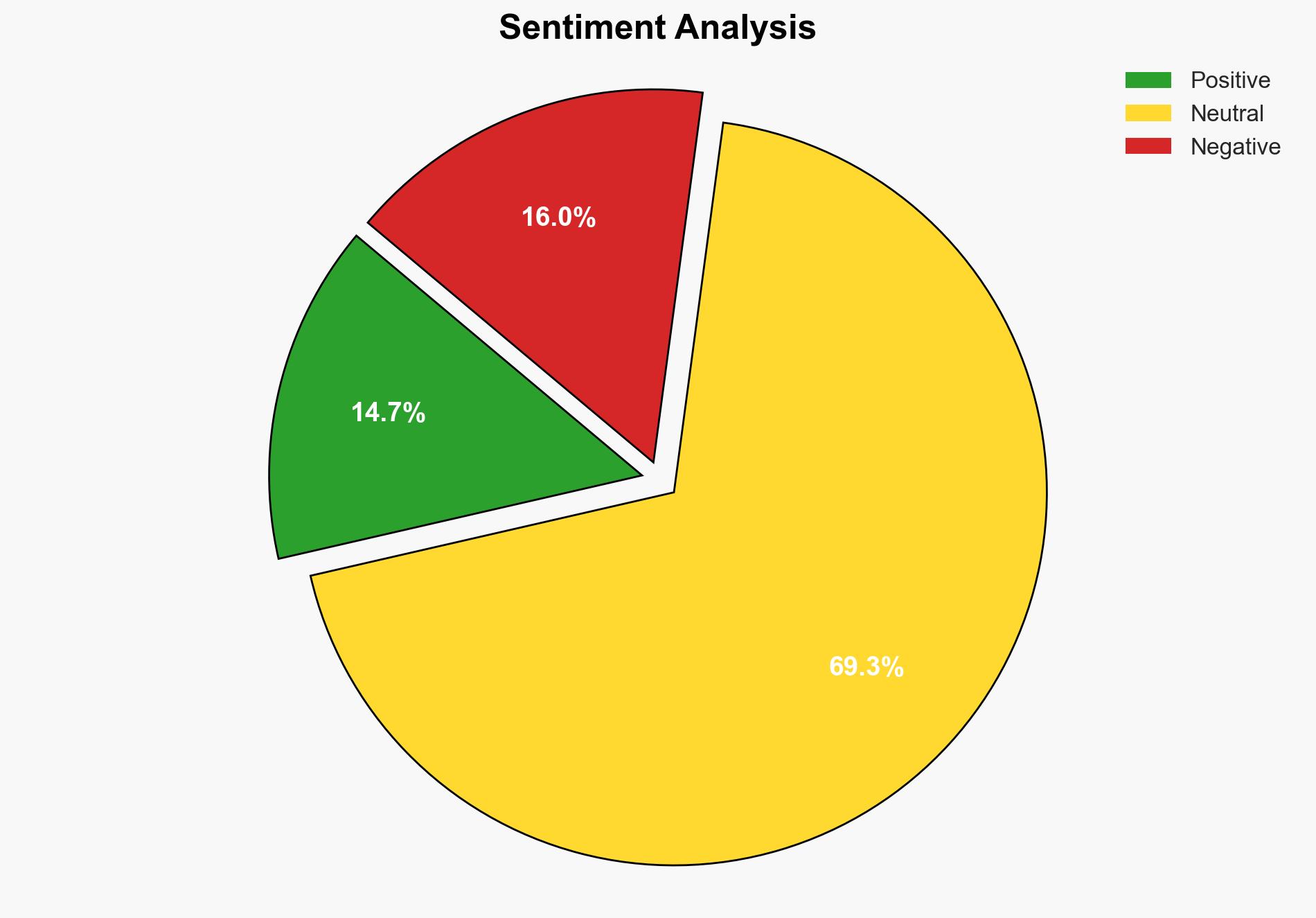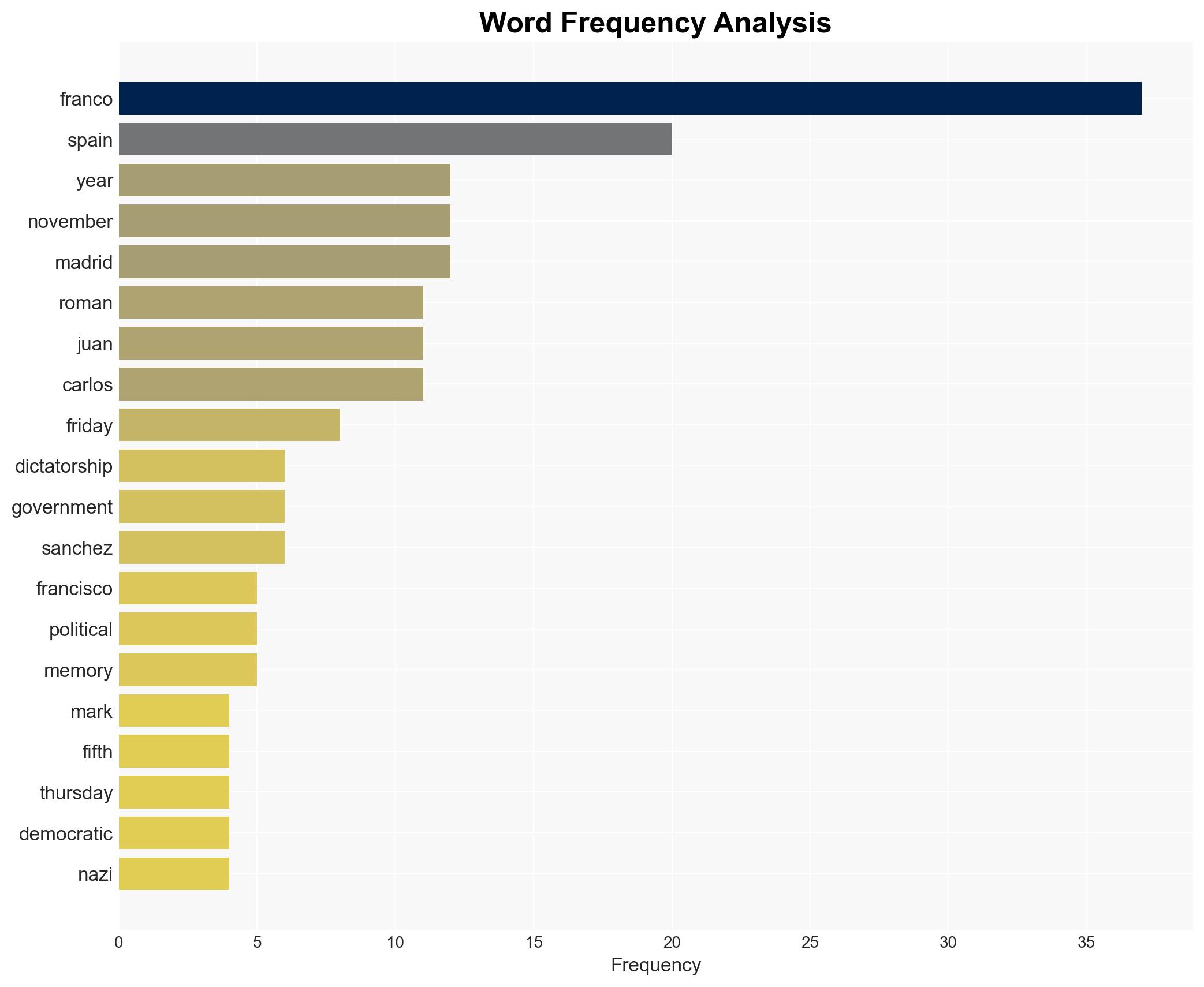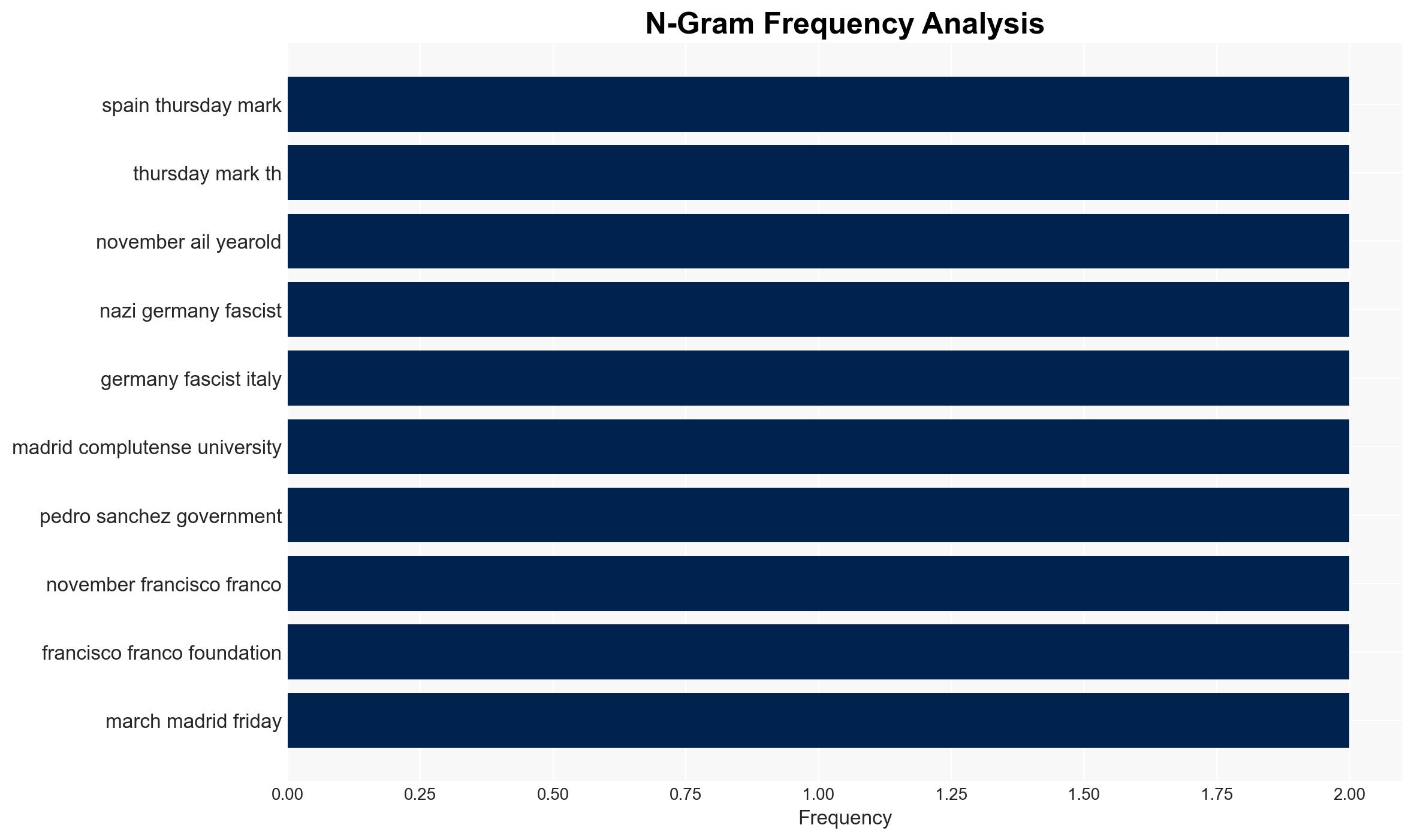Divided Spain marks 50 years since ex-dictator Francos death – EURACTIV
Published on: 2025-11-18
AI-powered OSINT brief from verified open sources. Automated NLP signal extraction with human verification. See our Methodology and Why WorldWideWatchers.
Intelligence Report: Franco’s Legacy and Spain’s Political Polarization
1. BLUF (Bottom Line Up Front)
The legacy of Francisco Franco continues to polarize Spain, exacerbating existing political divisions and societal fractures. The most supported hypothesis is that the current political climate will further exploit Franco’s legacy as a tool for political gain, perpetuating division. Confidence Level: Moderate. Recommended action includes promoting inclusive historical education and dialogue to mitigate polarization.
2. Competing Hypotheses
Hypothesis 1: The legacy of Franco is being used by political parties to deepen existing divisions for electoral gain. This is supported by the use of Franco’s memory in political discourse, particularly by the leftist government and right-wing opposition, as a means to rally their respective bases.
Hypothesis 2: The focus on Franco’s legacy is a temporary phenomenon that will subside as Spain’s political landscape stabilizes. This hypothesis is less supported due to the enduring nature of historical memory and its deep roots in Spain’s political culture.
The first hypothesis is more likely given the current political strategies and the historical context of Franco’s rule, which remains a potent symbol in Spanish politics.
3. Key Assumptions and Red Flags
Assumptions: It is assumed that political parties will continue to use historical narratives for political advantage. There is also an assumption that the general public’s understanding of Franco’s era is limited, which can be exploited.
Red Flags: The potential for misinformation and revisionist narratives to gain traction, particularly among younger demographics with limited historical education, poses a significant risk.
4. Implications and Strategic Risks
The continued politicization of Franco’s legacy could lead to increased societal polarization, potentially destabilizing Spain’s political environment. This could manifest in heightened political tensions, protests, and even violence. Additionally, there is a risk of international reputational damage as Spain grapples with its past.
5. Recommendations and Outlook
- Promote comprehensive historical education to provide a balanced understanding of Franco’s regime and its impact.
- Encourage dialogue and reconciliation initiatives to bridge societal divides.
- Best-case scenario: Spain successfully navigates its historical divisions, leading to a more cohesive society.
- Worst-case scenario: Political exploitation of Franco’s legacy leads to significant civil unrest and political instability.
- Most-likely scenario: Continued political use of Franco’s legacy maintains current levels of polarization without significant escalation.
6. Key Individuals and Entities
Pedro Sanchez (Prime Minister), Francisco Franco (Former Dictator), Juan Carlos (Former King), Paloma Roman (Political Science Professor)
7. Thematic Tags
National Security Threats, Political Polarization, Historical Memory
Structured Analytic Techniques Applied
- Cognitive Bias Stress Test: Expose and correct potential biases in assessments through red-teaming and structured challenge.
- Bayesian Scenario Modeling: Use probabilistic forecasting for conflict trajectories or escalation likelihood.
- Network Influence Mapping: Map relationships between state and non-state actors for impact estimation.
Explore more:
National Security Threats Briefs ·
Daily Summary ·
Support us





